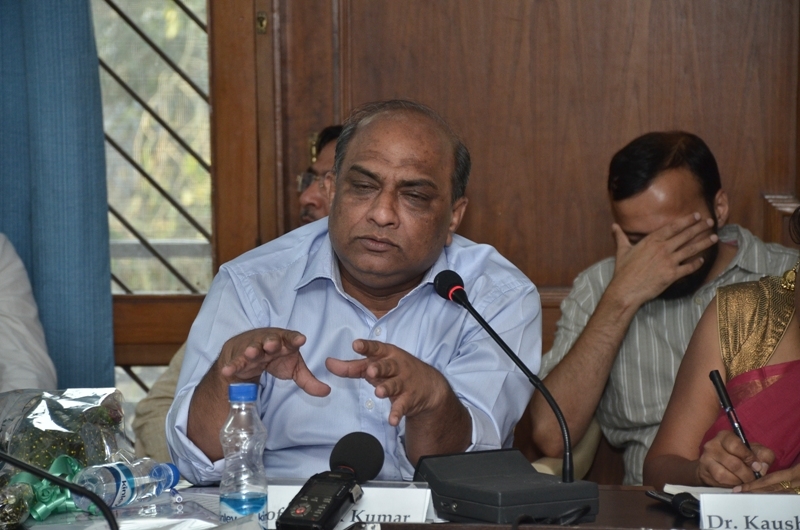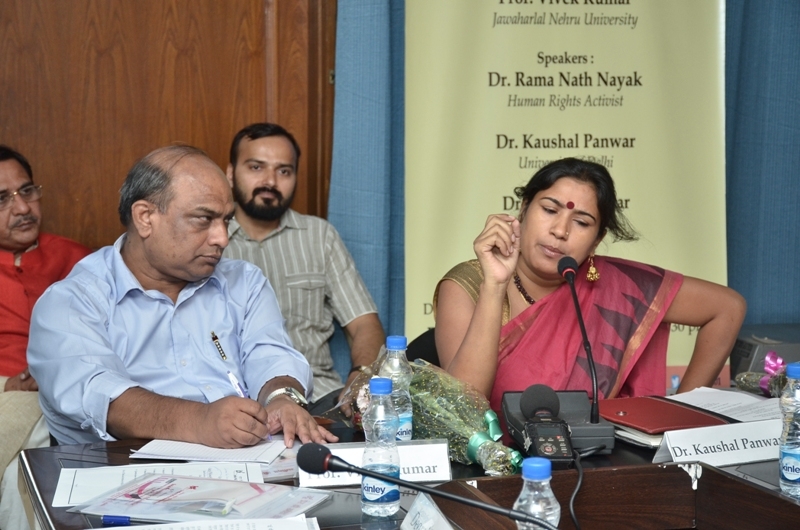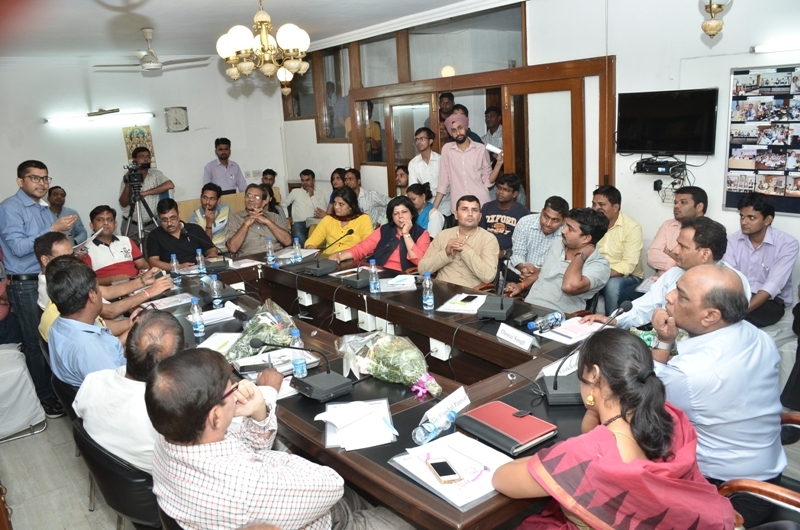Social Philosophy of Dr. B.R. Ambedkar
Total Views |

May 14, 2016, IPF Seminar Hall, New Delhi
Speakers: Prof. Vivek Kumar, Jawaharlal Nehru University
Dr. Kaushal Panwar, University of Delhi
Dr. Narendra Sant, University of Delhi
Scholars invoked the society to come forward to fight for the rights of deprived section. Speakers were of the view that there was a need to understand that in a culture and civilization ideas and thoughts are not necessarily contradictory rather there was a need to understand that parallel streams flow in any civilization. Ambedkar differentiated theology, rituals, religions based on book and revealed religions.
Speaking on the occasion Jawaharlal Nehru University’s Prof Vivek Kumar said that it was important to understand genesis of caste and how annihilation of cast was possible. And while talking about such things, Ambedkar had a different methodology to understand and make people understand. Epistemology of Ambedkar has 8 aspects. For instance Ambedkar used Archaeological evidences, Archival evidences, Sanskrit texts, government reports, paper cuttings, experiences and interviewed people. His basis of thoughts is based on Gautam Buddha while communists have based their understanding on Western epistemology.
Prof Kumar said that forgetfulness was very important for building of any nation. Living in the past is not going to help but a solution must be sought. This was necessary because some people have been made deprived while others have established their monopoly which is visible all across. Dalits are deprived all across. Take up of the case of every government institution for example Judiciary, bureaucracy, polity, industry, education, sports and civil society, Dalits are not properly represented. How change is possible?

Prof Kumar further said that there was a need for change and it was possible only when Dalits have been given rights of self determination. They are allowed to make laws, welfare schemes are other such things for themselves. Deprived people are given right to make laws for themselves, people who can understand agony must be given the right to make welfare schemes for them and there is an aspect of moral representation as well.
Speaking on the occasion Kaushal Panwar said that any society could be understood by the condition of women in that particular society. India society has been neglecting Dalits to the extent that deities of Balmiki community don’t figure into Sanskrit texts. They are still not given right and at some places they are not allowed to enter temples. Where is empowerment of Dalits? They are still struggling to meet ends.
Another speaker Dr Narendra Kumar Sant said that fraternity, equality and harmony were propagated since the time of Gautam Buddha. However the RSS started talking about it in 1925 with its formation which was the only solution to stop the country from getting disintegrated. This is possible only with a society where equality prevails. Gandhian philosophy could bring equality but not harmony. Dr Ambedkar talks about equality, harmony and fraternity. Prof Devraj talked about similarity in Vedantian and Buddhist philosophy.

Concluding the debate honorary director of IPF Prof Rakesh Sinha said that reservation is very important for Dalits. Quite often the issue is misinterpreted but the most important thing to note here is that right over the resources will be of the deprived people of the society. Prof Sinha said that dialogues are very important and binary is artificially created.
The programme was attended by over 100 people with some eminent people making it to the list.